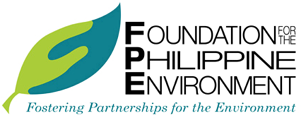News
FPE Special Project for Uplifting IPs’ Environmental Governance Yields Successful, High-Impact Results
Posted on May 9, 2015Mainstreaming Indigenous People’s Participation in Environmental Governance (MIPPEG) – a collaboration between the Foundation for the Philippine Environment (FPE) and the Philippine Association for Inter-cultural Development, Inc. (PAFID), in coordination with the National Commission for Indigenous Peoples (NCIP) – officially completed its four-year duration last December 17, 2014.
The project, which was designed to uplift the quality of life for indigenous peoples’ communities located in ecologically important sites through their capacitation and empowerment in environmental governance, succeeded in achieving notable and high-impact results throughout this period. By upholding and promoting IP rights to self-governance and self-determination, the action encouraged the mainstreaming of traditional environmental conservation systems, while also enabling and empowering the communities to participate in long-term sustainable development and local governance efforts.
Highlights of the project’s completed key outputs and achievements include:
- On land tenure security: An Ancestral Domain Sustainable Development and Protection Plan was developed and mainstreamed into local governance on the municipal and barangay levels. Meanwhile, local and national NCIP offices are currently addressing the issuance of Certificate of Ancestral Domain Titles (CADT) through negotiations with the Land Registration Authority.
- On policy advocacy: Mandatory IP representation from barangay to provincial-level local governance was established. This practice was initially carried out in Tubo, Abra, and its success has inspired other indigenous communities and local government units to follow suit.
- On capacity-building: In order to make the above item work, IP leaders were capacitated to effectively speak and assert their right to protect their ancestral domains against unsustainable extractive development. IP leaders are also increasingly being invited as resource speakers in assemblies and conferences to share their experiences and learnings from the MIPPEG project.
- On research and documentation: Indigenous knowledge systems and practices (IKSPs) were supplemented with resource and socio-economic studies, as well as video documentation. The IPs also received training on photo and video documentation.
- On natural resource management: At least 2,445 hectares of ancestral forests were planted with native tree species, while the people of at least 80 tribes were trained on law enforcement (26 have been deputized as forest guards).
- On sustainable mechanisms: As a partner to the government’s National Greening Program, MIPPEG helped raise the income of 280 households, engaging the locals in activities that included raising nurseries and planting native trees. They were also trained in soft-broom making, forest honey enterprise, and organic farming.
In addition, indigenous people’s organizations were introduced to a vast network of concerned support groups. In addition to these, MIPPEG also spearheaded a strong national-level advocacy campaign that aims to enable regulations for IP communities to receive due benefits from the government’s Energy Regulation (ER) 1-94 and Universal Charge-Environmental Charge under the Electric Power Industry Reform Act of 2001 (EPIRA Law). The project also set in place negotiations on beneficial royalty payments and/or payments for environmental services from the natural resources of ancestral lands. Last but not least, it also pushed for the inclusion of local indigenous community-conserved areas (ICCA) in the world ICCA registry in an effort to afford the local ICCAs due protection for its indigenous culture and biodiversity.
With fully realized outputs, as well as substantial seeds planted for ongoing IP empowerment and upliftment, MIPPEG’s conclusion signals what is only the beginning of a longer journey towards effective and mainstream community-based conservation involving the country’s indigenous populations.
MIPPEG’s component actions were carried out from December 18, 2011 until December 17, 2014. It involved one ancestral domain area in Tubo, Abra; two in Sibuyan Island, Romblon; one in Mt. Pulangi in Malaybalay, Bukidnon; and three in Mt. Kampalili in New Bataan, Compsotela Valley.
The project is supported by the European Union (EU) through Spain’s Fundación Desarrollo Sostenido (FUNDESO).
Read More:
- Executive Director Dr. Jerome L. Montemayor carried the banner of the Foundation for the Philippine Environment and the larger civil society during the SBSTTA 26 and SBI 4 meetings in Kenya
- Call for Proposals for the SGP-8 Country Programme Strategy
- #Y4B Ambassadors: JOEPET JEROME S. JARO
- #Y4B Ambassadors: MELLARD MANOGURA
- #Y4B Ambassadors: MARY JANE P. MAGAN
- #Y4B Ambassadors: SHRI TAHANIE B. MACAUMBAO

 DISPLAY CALENDAR
DISPLAY CALENDAR
 Read Policy Briefs
Read Policy Briefs
 View Our Partners
View Our Partners
 Access Grants MIS
Access Grants MIS
 Login to Webmail
Login to Webmail